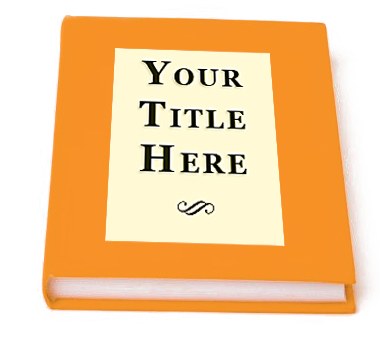
Did You Know that the Title of a Book Can Affect its Sales?

Why should you put more effort in creating your book title? Why do you have to wrack your brain for a few words when you’ve already spent countless hours weaving thousands for your story?
Your book title is one of the first few things your readers will immediately notice. You can get their attention with your book cover, but your book title can get them to linger. Remember, when your readers set their eyes on your book for the first time, they will pass judgment. If they don’t find it appealing, they will cast aside your book. Let’s put it this way, your book title can get those potential readers who are casually browsing the shelves to pick your book up and buy it. That is why you need to give importance to your title.
Your title can be long enough to cover the whole expanse of your book cover or it could simply be one word. Whatever it is you decide to do, keep in mind the following tips on how to write a book title:
1. Make it interesting.
If you’re hoping to turn those prospects into actual readers, you need to be interesting enough to convince them to read your book. Be unique. True enough, it’s easier said than done, but it’s the best advice anyone can give you. If your title is generic, potential buyers might have a prejudice towards it. They might assume that your book is no different from the thousands of books in that genre. For them, it may seem like ‘just another vampire book’ or a ‘typical boy meets girl story’. This is a cruel fate for an author – to be judged before actually being read.
2. Leave a lasting impression.
A catchy title for a book sticks with the readers. There are probably several book titles which contain the words ‘glass’ and ‘mirror’. If your potential reader can only remember those keywords, then that means trouble for you. Find a unique perspective in your story and use that to make your title stand out from the rest. You don’t want your readers to stumble on a book that has a title similar to yours. So, if you want to be read, make sure your title is one that’s worth remembering.
3. Your title must be appropriate for your story.
Writing a title in a sentence is fine, as well as in just one word. What matters is that you stay true to your story. Don’t stray away from its tone and atmosphere. For instance, if your story is about war, oppression, and revolution, your title must also suggest a grim or somber tone. Although funny and sarcastic titles do attract a lot of attention, using it for the sake of getting a larger readership won’t do you good. It will only mislead your readers. They might be expecting a light read, but instead they get the opposite. Your title is the first opportunity they get to judge your writing, and you wouldn’t want your readers to question your writing skills. You want them to read and appreciate your writing.
Here are a few ideas to help you get started:
A. A significant part of the whole
If you’re writing a nonfiction book and you’re not sure how to title it, just think about the main concept of your book and use that as your title. For fiction, think about what are the highlights of your story. You can always use that for your book title.
- What is your story about?
- When does it take place?
- Where does it take place?
- Who are the significant characters in your story?
B. A phrase from your book
Let’s use John Green’s The Fault in Our Stars as an example. His title comes from a small part in his book which explains everything about the story. Augustus, a cancer patient who’s in remission, falls in love with another cancer patient, Hazel Grace Lancaster. In the book, he makes a statement about Shakespeare being wrong about letting Cassius note, “The fault, dear Brutus, is not in our stars. But in ourselves.”
It becomes clear why the book is entitled The Fault in Our Stars. In his case and for the person he loves, of course, they didn’t choose to have cancer. Among the billions of people, they just had to be the select few. That’s the fault in their stars. This implies how things are sometimes beyond our control. Towards the end of the book, we are given another great example of this. (Spoiler Alert) Augustus Waters, the charming guy who we thought was already in remission, “lit up like a Christmas tree.”
C. Your author brand
One glimpse of your title and your readers will know it’s you. Here are some examples of authors with their unique titles:
Janet Evanovich and Numbers:
- One for the Money
- Two for the Dough
- Three to Get Deadly
- Four to Score
John D. MacDonald and Colors:
- The Lonely Silver Rain
- The Dreadful Lemon Sky
- The Long Lavender Look
Sue Grafton and the Alphabet:
- A is for Alibi
- B is for Burglar
- C is for Corpse
- D is for Deadbeat
Do you now know how to create a title for a book? If you need more insights, we have another blog post that might help you:
Give it your best shot! If you’ve got questions or suggestions, feel free to speak up!
Leave a Reply


